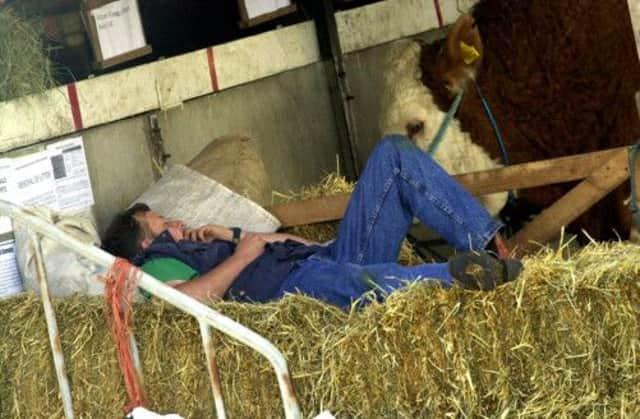Erikka Askeland: Not a good time to turn clock back


Through the pleasant haze in my head caused by sunshine, pounding surf and copious amounts of vinho verde, I remember being vaguely surprised that we were in the same time zone as the UK. Surely last time I was in the country’s Iberian neighbour, Spain, I had to do that travellers’ maths in my head caused by being in a different time zone.
Such is the danger of lazy beach holidays, I didn’t bother to think this through. Until a Spanish parliamentary commission this week proposed moving their clocks back an hour, bringing Madrid in line with Portugal and the UK. Not only would the change make the nation more bright eyed and bushy tailed (I paraphrase the report), it would correct the historical weirdness that caused the difference.
Advertisement
Hide AdAdvertisement
Hide AdApparently, the whole Iberian peninsula was in the same time zone as us until the 1940s. Which makes sense, because the prime meridian slices clean through Greenwich, France, Eastern Spain and then into Algeria. But the shocking little detail is that when Nazi-occupied France switched to German time, Spain’s newly established fascist dictator Francisco Franco, who was toying with a pro-Axis stance, followed suit. For that alone you’d reckon that it would be a good idea to come back into the Greenwich Mean Time fold.
But the commissioners reckon that slipping back an hour will make Spaniards more British and less likely to take their traditional siesta in the afternoon, that lull between 2pm and 4pm when shops close after a nice long lunch with the family. The system sees workers return to the workplace later, then nip out for some tapas after which can result in staying out to the wee hours rather than sensibly tucking themselves in bed to watch the news at 10pm.
It’s an interesting idea, although the afternoon siesta clearly predates the time-zone change which makes me sceptical it will work. The Spanish afternoon rest time emerged in the earlier, agrarian economy, when working outside in the blazing sun was only something mad dogs and Englishmen chose to do.
In fact, the siesta pre-dates time zones altogether. These only came into force after the 1884 International Meridian Conference in Washington DC where it was agreed to standardise global time.
Delegates from 25 nations voted in favour of placing the decisive zero degree line through the telescope at the Royal Observatory in Greenwich, mainly because sea charts used by most of the world had already mainly adopted this system.
Interestingly, the whole idea of time zones was down to a Scottish-born Canadian, Sir Sanford Fleming. The Kirkcaldy-born inventor and engineer came up with the idea of a standard, global 24-hour clock when he was annoyed at having missed a train in Ireland. His paper proposing the crazy notion paved the way for the next century’s boom in global travel and trade, and means it is possible for us to catch flight connections to Buenos Aries via Frankfurt. Unless you are flying Ryanair, which is another column altogether.
Prior to the invention of global time zones, people tended to wake when it was light and sleep when it was dark. Each town and city had their own manner of time keeping but since pocketwatches were rare, it didn’t really matter.
Back in Spain, I suspect that the government might be trying to do something. The country has been in recession for two years now and unemployment – particularly among the youth – remains worryingly high.
Advertisement
Hide AdAdvertisement
Hide AdCarmen Quintanilla, the president of the commission proposing the time change, reckons slipping back an hour could have a significant impact: “We drag out the morning and extend our lunchtime. We lose time and have to work more hours in the afternoon. Eating later, we have to start work later, which means we get off work later,” she said.
Maybe I’m an oddball (quiet, you at the back) but the way of life Ms Quintanilla describes sounds quite natural to me. Quite often I’ve thought we could learn a thing or two from the Spanish and their love of a midday meal – usually after I’ve gulped down my falafel wrap at my desk.
So, instead of changing the hour because of its dodgy historic associations, the government might change it as a result of the Spanish version of the global economic crisis. Frankly, I couldn’t think of a worse reason to change.